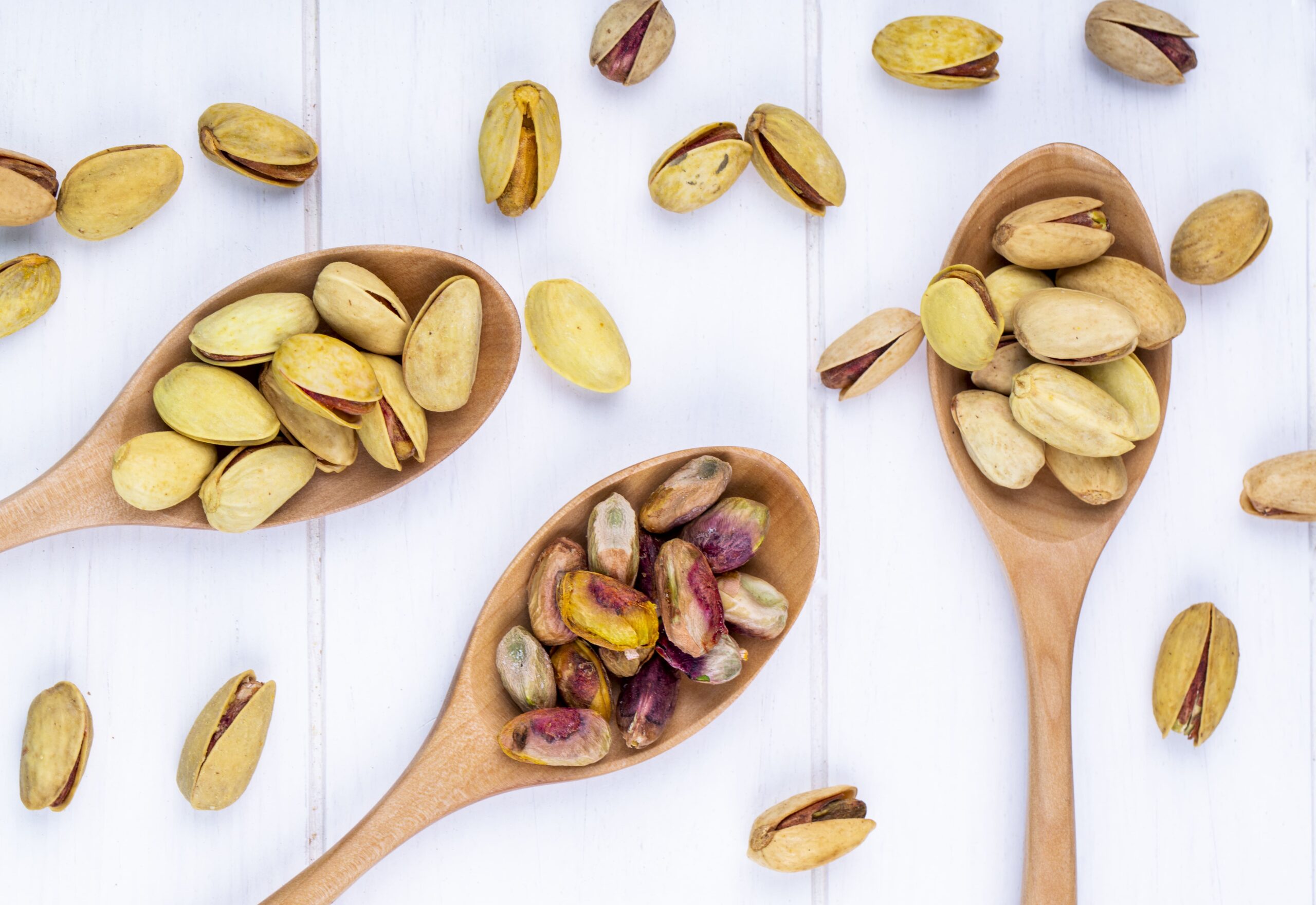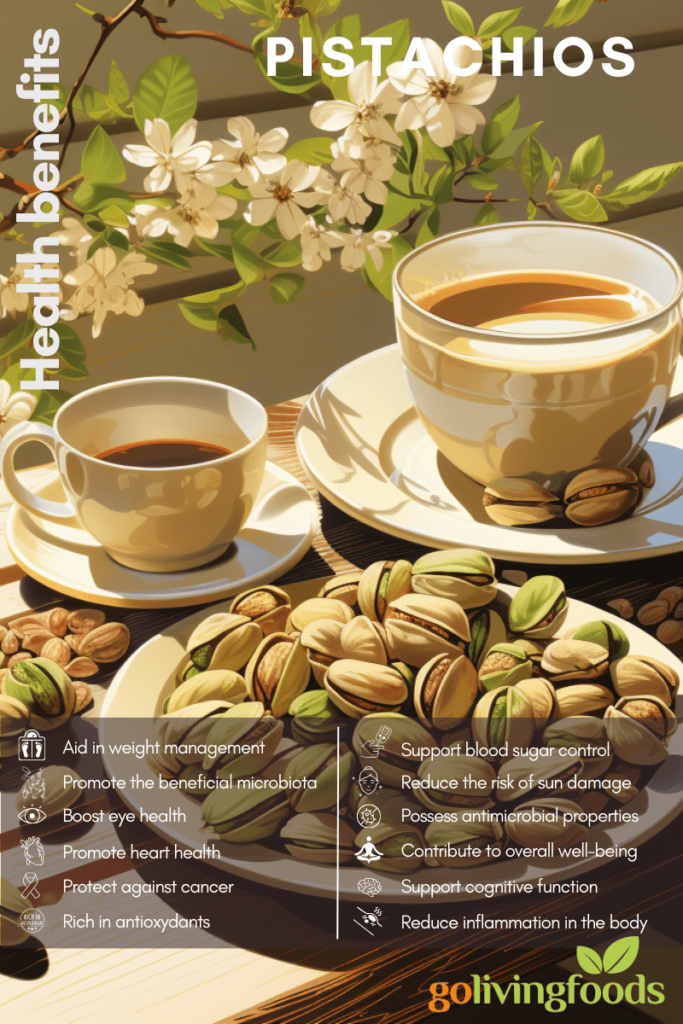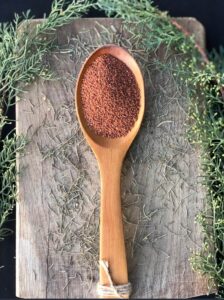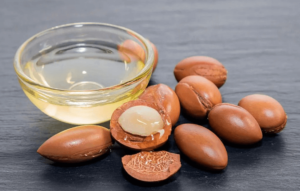Why Should Pistachios Be an Essential Component of Your Daily Diet?

Pistachios belong to the Anacardiaceae family and are native to the Middle East and Central Asia. These nuts have been cultivated for thousands of years and have become popular worldwide due to their distinct flavor, vibrant green color, and remarkable nutritional profile.
Pistachios are unique in several ways, one being their natural split-shell characteristic, which earned them the nickname “the smiling nut.” The shells partly open during growth, revealing the edible seed within. This feature makes pistachios easy to harvest and consume.
These green gems are a rich source of essential nutrients, including healthy fats, protein, dietary fiber, vitamins, and minerals. Their impressive nutritional profile has attracted scientific interest, leading to numerous studies exploring their potential health benefits.
In this comprehensive review article, we will delve into the world of pistachios and examine the scientific evidence behind their positive impact on human health.
Pistachio Cultivars
Pistachios are grown in different regions across the globe, and various cultivars have been developed to suit different climates and preferences.
Each cultivar may have slight differences in taste, appearance, and growth characteristics, but they all share the nutritional benefits that make pistachios a sought-after nut.
Below some of the most common pistachio cultivars:
Nutritional Value of Pistachios
Pistachios are a nutritional powerhouse, providing a wide range of essential nutrients in a small package. A 1-ounce (28-gram) serving of pistachios, which is about 49 kernels, contains approximately:
In addition to these macronutrients and micronutrients, pistachios are rich in beneficial plant compounds, including antioxidants, Carotenoids, and polyphenols. These compounds contribute to the potential health benefits associated with pistachio consumption.
Pistachios’ unique nutrient composition, especially their favorable ratio of unsaturated to saturated fats and their high fiber content, sets them apart from many other nuts. The combination of healthy fats, protein, fiber, vitamins, minerals, and phytochemicals makes pistachios a nutritious choice for promoting overall health and well-being.
Health Benefits of Pistachios
1. Promote Heart Health
Pistachios have been extensively studied for their potential cardiovascular benefits. Their rich content of monounsaturated and polyunsaturated fatty acids, including heart-healthy omega-3 fatty acids, helps maintain healthy cholesterol levels and reduces the risk of heart disease. Additionally, pistachios contain antioxidants, such as gamma-tocopherol and polyphenols, which have been associated with improved heart health and reduced inflammation.
1.1. Effects of Pistachio Consumption on Blood Lipids
Numerous studies have demonstrated the beneficial effects of pistachios on blood lipid profiles. Regular consumption of pistachios has been shown to decrease total cholesterol, LDL cholesterol, and triglyceride levels, while increasing levels of HDL cholesterol. These lipid improvements contribute to a healthier cardiovascular system.
1.2. Effects of Pistachio on Blood Pressure and Endothelial Function
Pistachios contain various bioactive compounds, including arginine and antioxidants, that promote healthy blood vessels and improve endothelial function. Several studies have reported reductions in blood pressure and improved vascular health with pistachio consumption.
2. Aid in Weight Management
Contrary to what one might expect, pistachios can be beneficial for weight management. Despite being energy-dense, their combination of protein, fiber, and healthy fats promotes feelings of fullness and reduces the urge to overeat. Several studies have shown that incorporating pistachios into a balanced diet can support weight loss and weight maintenance.
3. Support Blood Sugar Control
Pistachios have a low glycemic index, meaning they have a minimal impact on blood sugar levels. Their fiber and healthy fat content help slow down digestion and the release of glucose into the bloodstream. This can contribute to better blood sugar control, making pistachios a suitable snack option for individuals with diabetes or those looking to manage their blood sugar levels.
4. Boost Eye Health
Lutein and Zeaxanthin, two important antioxidants found in pistachios, play a crucial role in promoting eye health. These compounds accumulate in the retina and help protect against age-related macular degeneration and cataracts. Regular consumption of pistachios, along with a diet rich in other fruits and vegetables, can support long-term eye health.
5. Effect of Pistachios on Inflammatory State
Chronic inflammation is associated with various health conditions, including heart disease, diabetes, and certain cancers. Pistachios’ anti-inflammatory properties, attributed to their bioactive compounds, can help reduce systemic inflammation and contribute to better overall health.
6. Effects of Pistachios on Oxidative Stress
Pistachios are rich in antioxidants that combat oxidative stress, a process associated with aging and chronic diseases. The antioxidants present in pistachios, such as vitamin E, polyphenols, and carotenoids, help neutralize harmful free radicals and protect cells from oxidative damage.
7. Effects of Pistachios on Cancer
While more research is needed, some studies suggest that pistachios may have potential anti-cancer properties. The antioxidants and phytochemicals in pistachios, along with their ability to reduce inflammation and oxidative stress, may contribute to the prevention and inhibition of certain types of cancer. However, further investigation is required to fully understand the mechanisms and potential benefits.
8. Effect of Pistachios on Intestinal Microbiota
The gut microbiota plays a crucial role in overall health and disease prevention. Preliminary research indicates that pistachios may positively influence the composition and activity of the gut microbiota, promoting a more diverse and beneficial microbial community. This can have implications for digestive health, immune function, and disease prevention.
9. Pistachios and Cognitive Function
Emerging evidence suggests that the nutrients and bioactive compounds in pistachios may support cognitive function and brain health. Their antioxidant and anti-inflammatory properties, along with their contribution of essential nutrients like vitamin E, folate, and healthy fats, make pistachios a potential ally in maintaining cognitive health as we age.
10. Pistachios and Photoprotective Effect
Certain compounds found in pistachios, such as carotenoids and vitamin E, have been shown to offer photoprotective effects. These antioxidants help protect the skin from harmful UV radiation and may contribute to skin health and reduce the risk of sun damage.

11. The Antimicrobial and Antiviral Potential of Pistachio Polyphenols
Polyphenols found in pistachios possess antimicrobial and antiviral properties. These compounds have been shown to inhibit the growth of various bacteria and viruses, suggesting potential benefits for immune health and defense against microbial infections.
12. Contribute to Overall Well-being
In addition to their specific health benefits, pistachios can contribute to overall well-being by providing a nutritious and satisfying snack option. Their combination of protein, healthy fats, fiber, and essential nutrients supports energy levels, nourishes the body, and can contribute to a positive relationship with food.
Potential allergenicity and precautions
While pistachios offer numerous health benefits, it’s important to be aware of potential allergenicity and take necessary precautions. Pistachios are a tree nut, and like other nuts, they can cause allergic reactions in some individuals.
If you have a known allergy to tree nuts, including pistachios, it’s crucial to avoid them to prevent an allergic reaction. Allergic reactions can range from mild symptoms like itching and hives to more severe reactions such as difficulty breathing or anaphylaxis, a potentially life-threatening condition.
If you’re uncertain about your tolerance to pistachios, it’s recommended to consult with a healthcare professional or allergist before incorporating them into your diet. They can perform allergy testing and provide guidance based on your specific situation.
Additionally, individuals who have a history of kidney or gallbladder problems may want to moderate their intake of pistachios due to their relatively high oxalate content. oxalates can contribute to the formation of kidney stones in susceptible individuals. However, for most people, consuming pistachios in moderation as part of a balanced diet should not pose any concerns.






